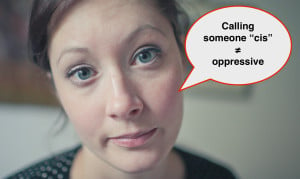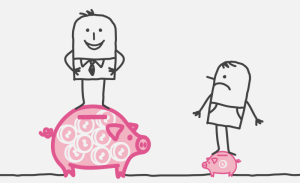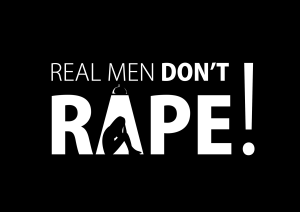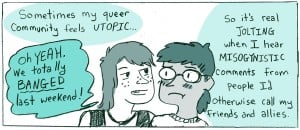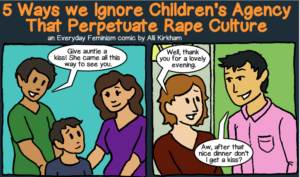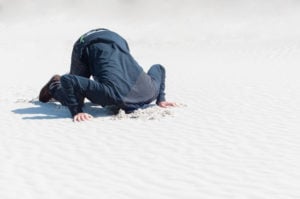(Content Warning: Suicidality discussed)
What does depression look like?
Being sad, right? Feeling hopeless, sleeping or eating too much or too little, being exhausted, unable to focus?
Depression is a complicated and misunderstood condition, even now.
I’ve come to feel that there are as many different depressions as there are those of us who have it. Though we might have a lot in common, the way that depression is diagnosed means that two people with the diagnosis might only actually share one symptom.
Besides the better-known symptoms I mentioned, there are lots of other ways people experience depression.
Some of these are written into the official diagnosis – other symptoms just seem to come up in a suspiciously large proportion of folks who have it.
I wanted to share some of these symptoms from my perspective as a therapist and as a person who’s been diagnosed with depression for eight years.
My point isn’t that if you’ve experienced any of these you’re 100% definitely depressed – it’s not that simple, and it’s never my place to diagnose someone who isn’t my client and who hasn’t asked for my opinion.
Rather, I’m hoping to help folks who are worried that they might be depressed but don’t seem to fit the criteria perfectly, understand themselves a little better, and know that they deserve help and support. Your experiences are valid whether they sound exactly like my old Psych 101 textbook or not.
Just a warning – parts of this article will be discussing suicide. Please take care of yourself and skip the fourth section if that’s not something you feel like you can handle.
1. Feeling Guilty All The Time, for No Reason
“Excessive or inappropriate guilt” is one of the American Psychiatric Association’s symptoms of depression, but few people who haven’t experienced it really get what that means.
Normally, guilt is a healthy and necessary emotion that lets us know when we’ve hurt someone or otherwise violated our own morals. When I’ve done something wrong, I feel guilty even if I didn’t get caught and if nobody realizes that I did the thing I feel guilty about.
Although people sometimes get mired in their guilt and use it to withdraw and avoid accountability for what they did wrong, guilt can also be a powerful motivator for making amends. When I acknowledge my mistake, apologize for it, and do what I can to repair it, my feelings of guilt usually start to subside.
But for those of us who also experience feelings of guilt as a depression symptom, it’s different.
First of all, these feelings come up regardless of what we may have done wrong recently.
Rather than being triggered by actions we’ve taken that we regret, depressive guilt can appear seemingly out of nowhere, or in response to anything else that typically triggers your depression symptoms – feeling rejected, failing at something, feeling lonely, being bored, and the list could continue.
Because our brains like to form connections and hate unexplained feelings, depressive guilt tends to “attach” itself to something.
Feeling guilty? It must be because you’re a horrible person who’s a burden on everyone in your life! Or maybe it’s because your friend texted you and you waited a few hours to text them back, which makes you literally the worst friend in the world. Or because your boss was kind and offered to let you take a mental health day, and you don’t deserve such kindness, and how could you possibly take advantage of people like that.
If you’re reading this and realizing that you’ve been feeling guilty when you rationally know you’ve done nothing wrong, it may be a depression symptom. Just because you feel like a terrible person doesn’t mean you are.
2. Overreacting to Perceived Rejection from Other People
Nobody likes to feel disliked or unwanted by others. My depression is pretty much under control now, and I still hate it.
But when I was depressed, it felt like every tiny potential sign that someone didn’t like me – or didn’t like me as much as I liked them – was equivalent to getting unceremoniously dumped by a partner or best friend of many years.
If a friend cancelled their plans with me because they didn’t feel like going out, or a partner told me they’d rather hang out with friends right now than talk to me on the phone, it always felt like the bottom had fallen out of my world.
That’s what psychologists call “rejection sensitivity,” and it means exactly what it sounds like.
When you have this symptom, not only does actual rejection – breakups and so on – hurt even worse than normal, but you also see signs of rejection where there might not be any.
And in fact, rationally I knew that my friend shouldn’t feel obligated to go out with me if they didn’t feel like it, and that my partner should have time with their friends rather than talking to me on the phone all the time, but it felt horrible when they said so.
This symptom particularly sucks because, unless you’re extremely self-aware and have excellent coping skills, it’s easy to let it blow back onto the people you’re close with, making them feel guilt-tripped and manipulated.
I did more than my fair share of this as a teenager and young adult before I was diagnosed and able to access treatment.
And when our loved ones don’t understand that this is part of our depression – or they do, but don’t have the capacity to cope with it themselves – that can cause us to lose relationships and become even more convinced that everyone’s going to reject us.
It can take a very long time to break out of that cycle and to learn better interpersonal skills – without blaming ourselves for being depressed to begin with.
In my experience, the more my depression improved overall, the less sensitive I felt to rejection.
For some people, especially those with other disorders like social anxiety, ADHD, or borderline personality disorder, rejection sensitivity might be its own problem to work on.
Thankfully, there are lots of great therapy techniques for dealing with rejection sensitivity, and compassionate and anti-ableist advice blogs like Captain Awkward can help, too.
3. Feeling Overwhelmed, Like You Can’t Handle Life
Everyone has times in their lives when it feels like everything is crashing down.
You just got fired from your job, got hit with a major medical bill, broke up with a partner, lost a beloved pet, and then the toilet won’t flush, and the landlord won’t answer your calls about coming out and fixing it, and now you can’t even use the damn toilet as if the rest of it wasn’t enough already and, and, and.
If you’ve ever had a week or a month or a year like that, you probably still remember clearly how powerless and overwhelmed you felt. For some people, a period like that can even trigger a depressive episode.
Many people with depression feel like that all the time, regardless of what’s actually going on in their lives.
Of course, some people with depression may actually have very chaotic and unstable lives – maybe because of their illness, or as a cause of their illness, or a bit of both – but not everyone does.
When I was at my most depressed, I was in college studying a major I hated. While that was stressful, it wasn’t objectively stressful enough to make a non-depressed person want to exit life altogether, and it was also easily resolvable by dropping the awful major.
If you’re curious, the major was journalism. I’m now sitting happily at my desk and writing for pay, but with a social work degree instead.
At the time, though, it didn’t feel resolvable at all. I felt suffocated, crushed, completely defeated. I thought I felt that way because, duh, my major was terrible, and I hated it!
But when I learned more about depression, I realized that those feelings were actually symptoms.
I’ve been in crappy situations since my depression improved, and I’ve had crappy feelings about those situations, but I never again experienced that feeling of being entirely overwhelmed by living.
4. Feeling Like Maybe Not Being Alive Would Be Kinda Better
Many people think of suicidal thoughts in a binary way – either you’re healthy and of course you don’t want to die, or you’re mentally ill, and you actively want to be dead.
It’s very difficult for a lot of folks who’ve never experienced suicidal thoughts to understand how someone could literally want death.
For many suicidal people, though, that’s not really how it feels. It’s not that they want to die, it’s that they just wish they didn’t have to deal with living anymore. That often goes along with that feeling of overwhelmed-ness that I described above.
When I was experiencing suicidal thoughts, I definitely didn’t want to die.
I worried that death would be unspeakably awful and terrifying, but life was also feeling pretty awful and terrifying, and I just didn’t know what to do.
So thoughts of dying naturally popped into my head. It was like, “Okay, dying wouldn’t be ideal, but on the bright side, I would never again have to force myself through a panic attack to interview a total stranger for a journalism project, so maybe dying wouldn’t be so bad.”
Everyone experiences suicidality in their own way, and that was mine.
If you’re having intrusive thoughts about dying or taking your own life, even if you’re pretty sure you’d never actually do that, that’s a valid thing to be concerned about and definitely a good reason to try to seek some help. You don’t have to be ready to go with a plan and a means before your experience matters.
In fact, as a mental health professional, I always try to help clients talk openly about their suicidal feelings, even if those feelings are very passive and vague. While plenty of people with depression never move on to making more concrete plans for suicide, or making any attempts, some do.
The sooner we can help them express what they’re feeling and find support, the easier it’ll be to help them feel better. So if that describes you, know that you deserve care and affirmation, even if it seems like other people’s feelings are more “serious” than yours.
If you’re thinking about suicide, please care for yourself and reach out for help. Here are some resources that can help support you:
- National Suicide Prevention Helpline: 1-800-273-8255 (or chat on their website)
- The Trevor Lifeline for LGBTQIA+ Youth: 1-866-488-7386
- Trans Lifeline: 1-877-565-8860
If you’re uncomfortable using the phone, the National Suicide Prevention Helpline and the Trevor Lifeline also have a chat feature on their websites.
5. Feeling Unreasonably and Unbearably Angry
Most people associate depression with feeling sad – or, if they’re pretty knowledgeable, with being numb and not feeling a lot at all. It tends to be either/or, but some people with depression alternate between sad and numb. It’s not fun.
Others, though, experience much of their depression as irritation or anger. These feelings can come up on their own, or they can happen as reactions to other depression symptoms, like inability to focus or feeling powerless and out of control.
Psychotherapist Terrence Real believes that the fact that many people, even some mental health professionals, don’t recognize anger as a possible depression symptom is one of the reasons depression is underdiagnosed in men.
His perspective is a complicated one and his book, I Don’t Want To Talk About It, is a good way to learn more about it.
But, in a nutshell, many men, masculine folks, and people assigned male at birth are socialized to suppress pretty much all emotions except anger.
Someone who’s raised this way may experience or reinterpret other negative emotions, such as sadness or fear, as anger because that’s the only thing that really makes sense. Toxic masculinity can make people feel like crying or being scared is unacceptable, but yelling and punching walls isn’t.
I’ve been close to many men who seemed to go through life with anger as their primary emotion.
I don’t know if they all fit the diagnostic criteria for depression, and I won’t pretend to know where all that anger was coming from, but I do know that turning all of your negative emotions into anger can make it that much harder to deal with the source of those emotions.
Regardless of gender or upbringing, anger can feel like a “safer” way to express fear or sadness.
That means that lots of folks with depression experience a lot of anger, and may not realize that it’s part of their depression because it’s not what we’re taught depression looks like.
***
If you’re struggling with some of the symptoms I’ve described here, it may mean you have depression. It may not. Diagnosing someone with a mental illness is much more complicated than going down a checklist of symptoms.
That said, self-diagnosis can be helpful, especially for people who can’t access professional mental healthcare. It can help you find community, support, and resources to help you cope.
I always encourage folks who feel safe doing so to try and access professional help, but everyone’s mental health journey looks different. The important thing is to know that your symptoms don’t have to seem “typical” to be valid, and that even the professionals can be wrong and overlook folks who are struggling.
Whether your depression looks like anger or sadness, sensitivity or apathy, guilt or suicidality, or all of the above, your depression is real.
[do_widget id=’text-101′]
Miri Mogilevsky is a Contributing Writer for Everyday Feminism. She is a recent graduate of a Masters in Social Work and is starting a career as a counselor in Columbus, Ohio. She loves reading, writing, and learning about psychology, social justice, and sexuality, and is working on her cat photography skills. Miri writes a blog called Brute Reason, rants on Tumblr, and occasionally even tweets @sondosia. Check out her articles here.
Search our 3000+ articles!
Read our articles about:
Our online racial justice training
Used by hundreds of universities, non-profits, and businesses.
Click to learn more










